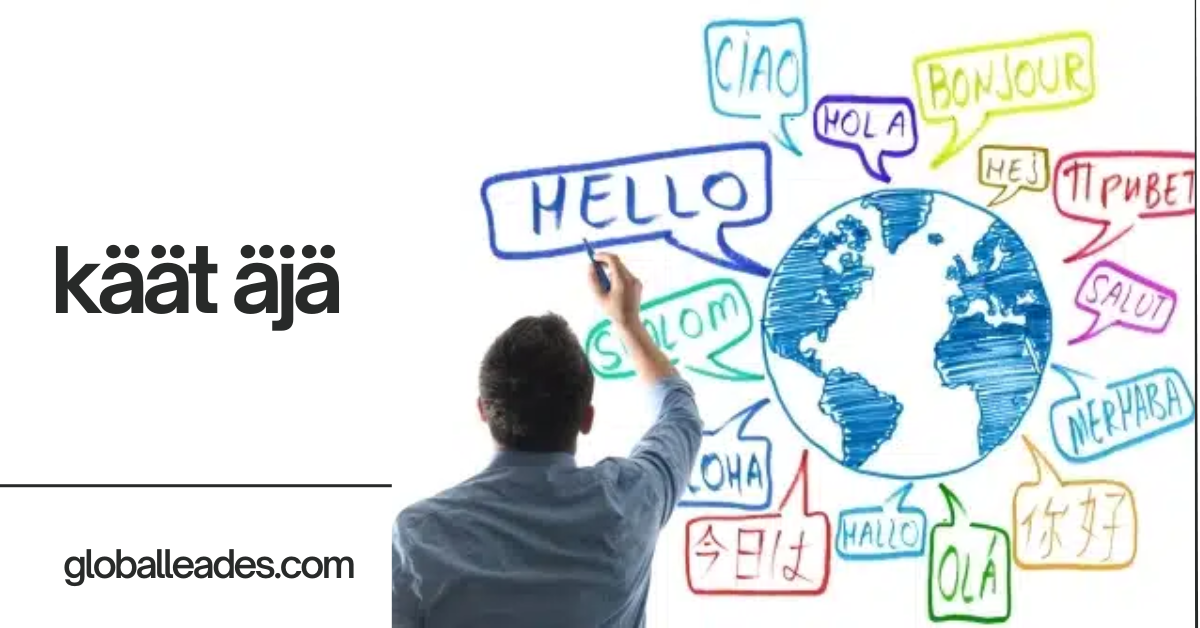The proverb “거만한 크랭키작다고 무시하면 안 돼요” from Korean culture encapsulates a profound lesson applicable across diverse contexts.
It warns against hastily judging individuals based on superficial traits like arrogance or crankiness. Instead, it advocates for deeper understanding and empathy, highlighting the potential contributions and qualities that may lie beneath initial impressions.
In a globalized world where cultural exchange and understanding are increasingly important, this proverb serves as a reminder of the universal value of respecting individuals and embracing diversity of perspectives.
What Does “거만한 크랭키작다고 무시하면 안 돼요” Mean?
The translation of “거만한 크랭키작다고 무시하면 안 돼요” as “Don’t underestimate someone just because they’re arrogant and cranky” reveals its core message.
In Korean culture, where humility and mutual respect are highly regarded, the proverb advises against dismissing individuals solely based on perceived negative traits.
It emphasizes the importance of looking beyond initial behaviors or attitudes to recognize the potential talents, insights, and strengths that every person possesses.
By promoting empathy and open-mindedness, this proverb encourages richer, more meaningful interactions and relationships.
Why People Tend to Underestimate Others
Psychological Biases
Underestimation often stems from cognitive biases such as the halo effect and confirmation bias. The halo effect leads people to make generalized assumptions about a person based on a single trait or behavior.
Also Read: превоодач – Mastering the Art of Translation
Confirmation bias reinforces these assumptions by seeking out information that confirms existing beliefs while ignoring contradictory evidence. These biases can cloud judgment and prevent individuals from seeing the full range of capabilities and qualities that others possess.
Cultural Influences
Cultural norms heavily influence how people perceive and interact with others. In cultures that prioritize humility and modesty, individuals who display confidence or assertiveness may be perceived as arrogant or overly confident.
Conversely, cultures that value assertiveness may view humility as a lack of self-assurance. Understanding these cultural dynamics is crucial in avoiding misunderstandings and fostering inclusive environments where diverse perspectives are valued.
The Power of Perseverance and Resilience
Examples of Resilient Individuals
Resilience in the face of underestimation is exemplified by individuals who have overcome significant challenges to achieve success.
Historical figures like Abraham Lincoln, who faced numerous setbacks before becoming President, demonstrate the transformative power of perseverance. Modern examples include entrepreneurs like Oprah Winfrey, whose journey from adversity to success inspires others to persist despite obstacles.
Overcoming Adversity
Resilience is cultivated through adversity, challenging individuals to adapt, learn, and grow from setbacks. Those who embrace challenges as opportunities for personal and professional development develop the resilience needed to defy underestimation and achieve their goals.
Also Read: Käämtäjä – Know The Importance In 2024
By maintaining focus on long-term objectives and learning from failures, individuals strengthen their resolve and prove their capabilities over time.
How Underestimation Can Motivate
Personal Growth and Development
Underestimation can serve as a powerful motivator for personal growth. When faced with skepticism or low expectations, individuals are challenged to prove their worth and capabilities.
This challenge fosters resilience, determination, and a drive to exceed expectations, leading to personal growth and self-empowerment.
Turning Criticism into Fuel
Criticism and underestimation can fuel determination and ambition. By viewing negative perceptions as opportunities to showcase strengths and abilities, individuals harness adversity as a catalyst for success.
This mindset shift encourages proactive behavior, strategic planning, and continuous improvement, ultimately leading to greater achievements and recognition.
Real-Life Implications
Impact on Relationships and Opportunities
Underestimating others can strain interpersonal relationships and hinder collaborative efforts. Recognizing and addressing biases is essential in fostering inclusive environments where diverse talents are valued and leveraged for collective success.
Also Read: Käntäj – Exploring the Revolutionary This Translation Tool In 2024
By promoting open communication, mutual respect, and empathy, individuals can build stronger, more supportive relationships and capitalize on opportunities for growth and innovation.
The Role of Self-Belief in Overcoming Underestimation
Strategies for Building Self-Belief
Developing self-belief involves cultivating a positive mindset, setting achievable goals, and celebrating personal achievements. Techniques such as visualization, positive affirmations, and seeking mentorship support confidence-building efforts.
By nurturing self-confidence and resilience, individuals strengthen their ability to withstand underestimation and pursue their aspirations with conviction.
Importance of Persistence
Persistence is key in overcoming underestimation and achieving long-term success. By maintaining determination and resilience in the face of challenges, individuals demonstrate their capabilities and earn recognition for their achievements.
Setting clear objectives, maintaining focus, and learning from setbacks are essential strategies for navigating professional challenges and proving one’s worth.
Why Arrogance Isn’t Always a Negative Trait
Balancing Confidence and Humility
While arrogance can alienate others, it can also signify strong self-assurance and conviction. Balancing confidence with humility involves acknowledging strengths while remaining open to feedback and collaboration.
Also Read: Käänjä – The Role Of Its In Communication In 2024
This balanced approach fosters constructive relationships, mutual respect, and effective teamwork, enhancing overall productivity and success in diverse cultural and professional settings.
Cross-Cultural Perspectives
Cultural attitudes towards arrogance vary globally, influencing how confidence and assertiveness are perceived and valued. In some cultures, assertiveness is esteemed as a sign of leadership and competence, whereas humility is prized in others for promoting harmony and modesty.
Understanding cultural nuances enables individuals to navigate diverse social and professional environments effectively, promoting inclusive communication and collaboration.
Social and Workplace Dynamics
Navigating Professional Environments
In professional settings, underestimation can impact career progression and interpersonal dynamics. Strategies such as assertive communication, building credibility through consistent performance, and advocating for one’s contributions are essential for overcoming barriers and achieving professional success.
By demonstrating expertise, reliability, and ethical conduct, individuals enhance their credibility and influence, promoting recognition and opportunities for advancement.
Strategies to Handle Underestimation
Assertiveness Without Aggression
Assertiveness involves advocating for oneself respectfully and confidently, articulating ideas clearly, and demonstrating competence. By asserting one’s value through professional achievements and effective communication, individuals counter underestimation and earn respect for their contributions.
Also Read: Käänjä – The Role Of Its In Communication In 2024
Building strong professional networks, seeking mentorship, and cultivating relationships based on mutual trust support career growth and mitigate the impact of biases.
Building Credibility and Influence
Building credibility through expertise, reliability, and ethical conduct enhances influence and fosters trust in professional relationships. Developing a reputation for competence and integrity enables individuals to overcome underestimation and leverage opportunities for career advancement.
By actively contributing to team goals and demonstrating leadership qualities, individuals strengthen their professional reputation and enhance their impact on organizational success.
Famous Quotes on Underestimation
Inspiring Perspectives
Quotes from influential figures such as Maya Angelou and Mahatma Gandhi underscore the transformative power of resilience and determination in overcoming underestimation.
These quotes inspire individuals to persevere in the face of adversity, embrace challenges as opportunities for growth, and pursue their aspirations with unwavering commitment.
By internalizing words of wisdom from visionary leaders, individuals strengthen their resolve and inspire positive change in their personal and professional endeavors.
The Pitfalls of Underestimating Others
Missed Opportunities for Collaboration
Underestimating others limits collaboration and innovation, depriving organizations of diverse perspectives and creative solutions.
Also Read: Käöntöjä – Breaking Language Barriers In 2024
Embracing inclusivity and valuing each individual’s unique contributions fosters a culture of creativity, cooperation, and mutual respect. By recognizing and leveraging diverse talents, organizations enhance decision-making processes and achieve sustainable growth and success.
Ethical Considerations
Ethically, underestimating others perpetuates biases and prejudices that undermine fairness and equality. Promoting a culture of inclusivity, respect, and empathy cultivates a supportive environment where every individual is valued for their skills, perspectives, and contributions.
By challenging stereotypes and fostering diversity of thought, organizations uphold ethical principles and promote a culture of fairness, integrity, and mutual respect.
Case Studies of Cocky Individuals
Historical and Contemporary Examples
Historical figures like Marie Curie and contemporary leaders like Jeff Bezos have been perceived as cocky or arrogant due to their bold visions and unwavering confidence.
Also Read: ListCarLwers – Tips for Maximizing the Use Of this In 2024
Despite criticism, their resilience, innovative spirit, and commitment to excellence propelled them to achieve groundbreaking discoveries and transformative impact in their respective fields. By challenging conventional wisdom and embracing calculated risks, these individuals defied underestimation and left an indelible mark on history.
Conclusion: 거만한 크랭키작다고 무시하면 안 돼요
In conclusion, the Korean proverb “거만한 크랭키작다고 무시하면 안 돼요” offers profound insights into the dangers of underestimation and the transformative potential of resilience, self-belief, and empathy.
By fostering a culture of inclusivity, respect, and open-mindedness, individuals and organizations can harness the diverse talents and perspectives of their teams to achieve collective success and innovation.
This proverb serves as a timeless reminder to look beyond surface judgments, embrace diversity, and empower individuals to surpass expectations and achieve meaningful contributions to society.
FAQs about the Korean proverb “거만한 크랭키작다고 무시하면 안 돼요”
How can arrogance sometimes be a sign of insecurity?
Arrogance can mask insecurities by projecting overconfidence to compensate for perceived weaknesses.
Why is it important to distinguish between confidence and arrogance?
Distinguishing between confidence and arrogance helps in promoting effective communication and collaboration.
Can underestimation ever lead to missed opportunities for personal growth?
Yes, underestimation can motivate individuals to prove their capabilities, driving personal growth and resilience.
What role does cultural empathy play in understanding the meaning of the proverb?
Cultural empathy enhances understanding by appreciating diverse perspectives and behaviors beyond surface impressions.
How can historical figures’ examples help illustrate the proverb’s relevance today?
Historical figures like Nelson Mandela demonstrate resilience in overcoming underestimation, inspiring perseverance in modern contexts.
Is there a correlation between humility and success in professional settings?
Yes, humility fosters openness to learning and collaboration, contributing to long-term success and leadership.
What strategies can individuals employ to handle underestimation effectively?
Strategies include assertive communication, building credibility through consistent performance, and seeking mentorship for support and guidance.




